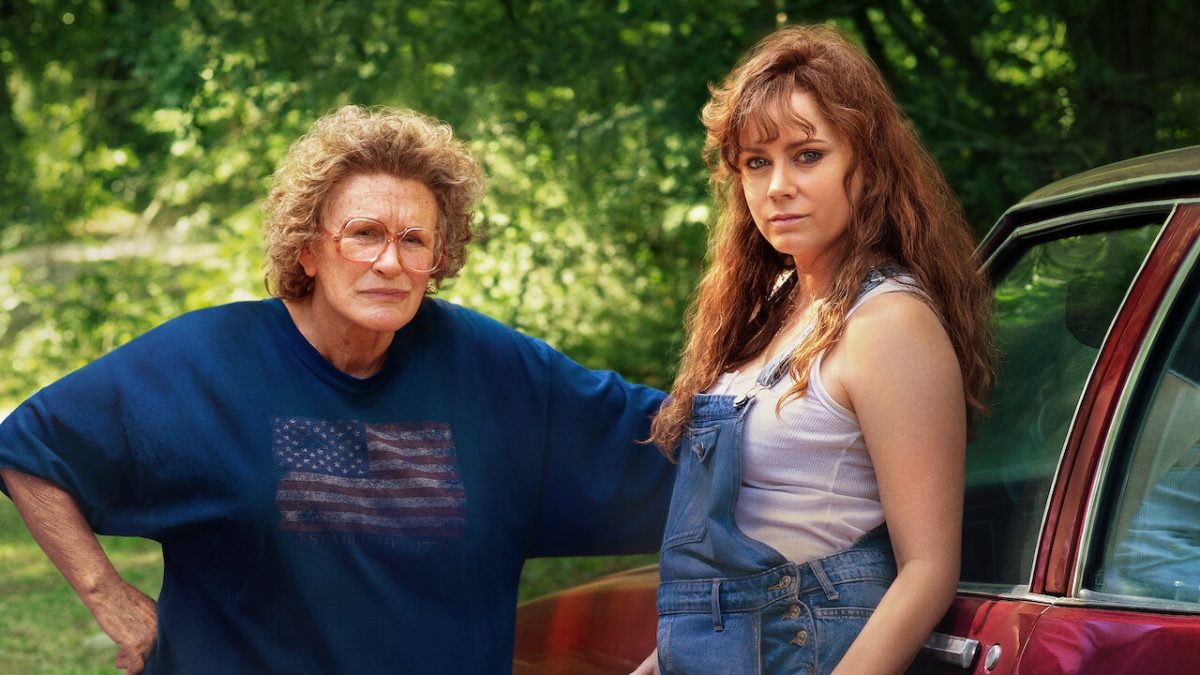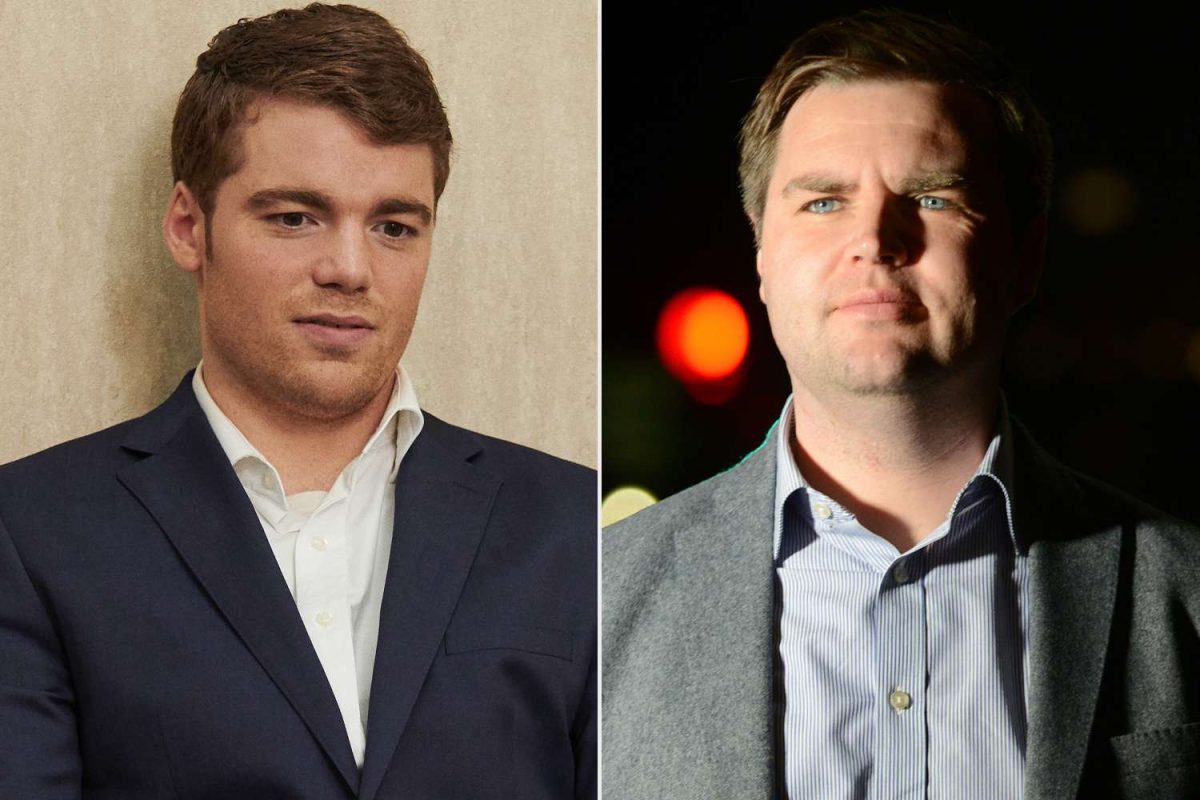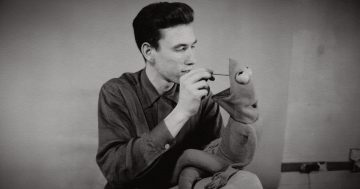
Glenn Close (left) and Amy Adams star in Hillbilly Elegy, based on the life of JD Vance, Donald Trump’s vice-presidential candidate for the upcoming US elections. Photos: Supplied.
An unvarnished, disconcerting, rags-to-riches story of triumph, Hillbilly Elegy is a true account based on the life of JD Vance, who is Donald Trump’s vice-presidential candidate in the 2024 United States presidential election.
It is also an on-screen adaptation of the 2016 biography Hillbilly Elegy: A Memoir of a Family and Culture in Crisis by the American politician, author and Marine veteran who has served as the junior US senator from Ohio since 2023.
The film shows the impact of the American Dream on three generations of an Appalachian family. The Vance clan hails from a small mountain town in northern Kentucky. The narrative is of a boy “making it” despite a rough upbringing. His mother and grandfather struggled with drug and alcohol addiction.
It explores his childhood – also his sister, Lindsay (Haley Bennett, The Equalizer, The Magnificent Seven, Cyrano) – being raised by their drug-addicted mother and their grandparents. It’s a gut-wrenching, emotional portrait of growing up in, and eventually getting out of, a poor rural community “riddled by drug addiction and instability”.
James David Vance, who answers to the sobriquet J.D. or JD, has to be commended for his perseverance, willpower, a commitment that pushed him to excel. Vance’s account confirms that a family’s stability is essential to upward mobility, and that family ties bind. It validates the fact that you can’t help those who won’t save themselves.
The film version is not remarkable, but being serious and straightforward, the inclination for a connection is apparent, particularly for those families who have dealt with financial deprivation, addiction, later recovery, domestic abuse and other problems highlighted in this story.
Often disjointedly jumping between 1997 and 2011, Hillbilly Elegy is a tale of victory – the story of an intelligent, impressionable, often creative person who grew up in hardship and dissonance, amid generations doomed to repeat destructive cycles of behaviour and never leave the place that formed them.
The actors who portray the characters on screen are an uncanny reflection of the real-life people they play in the Ron Howard-directed 2020 Netflix film that begins by introducing us to JD (played by Owen Asztalos), a young boy who is wise beyond his years.
This follows his atypical childhood, which involved being raised by a single mum, ”Bev” (Amy Adams, American Hustle, Junebug, Enchanted), who struggles with drug dependence. Although she didn’t set the best example, JD coaches his mother through separations and angry verbal outbursts.

Gabriel Basso (left) plays an adult JD Vance in the Ron Howard-directed film Hillbilly Elegy. JD Vance, in real life, is at right.
Glenn Close (Fatal Attraction, Dangerous Liaisons, The Big Chill) plays the matriarch, Bonnie Vance, JD’s no-nonsense maternal grandmother, who goes by ‘’Mamaw’’. Close is almost unrecognisable in her depiction. The Ohio senator was primarily raised by his grandparents, including Bonnie’s husband, James (Bo Hopkins as ‘’Papaw”’ Vance).
To better portray her character when filming, like Close, Adams also met the real-life Beverly as it was crucial to talk with the real JD. Amy says: “No matter how fierce she could be, they sensed that, underneath, she was a damaged person herself, but she had this great energy about her in a non-compromising way.”
Gabriel Basso (The Night Agent, Super 8, The Kings of Summer) portrays the adult JD, who is an expressive, honourable, reasonable kid from a dead-end town who attends Yale and finds love with an Indian-origin litigator named Usha Chilukuri (Freida Pinto, Slumdog Millionaire, Trishna, Love Sonia).
Even as life accomplishments accrue, JD remains constrained by the culture in which he has grown up, including ‘‘working-class-to-poor white, mired in unemployment and at risk of addiction’’. However, things come to a head and action needs to be taken to deal with it. The day before an interview for a summer law clerk job that could fund his next semester, JD is called home to deal with a situation that has resulted in his mother (who has been in and out of rehab for addiction for years) having just survived a heroin overdose.
Oscar-winning director Ron Howard (A Beautiful Mind, Cocoon, Apollo 13) takes a subdued approach with the film, showing little interest in making “sweeping statements about the historical roots of white, working-class, Republican Rust Belt grievances against so-called ‘Blue America’”.
Rightly described as a narrative of personal achievement in the face of great hardship, this movie is designed to end with an uplifting elegy – not an emotional lament, expressing sorrow or mourning. It’s a vindication of one’s convictions to conquer adversity. It’s about measuring success not so much by the position that one has reached in life, but by the obstacles overcome to get to the top.
Hillbilly Elegy, directed by Ron Howard, is streaming on Netflix.



